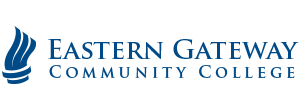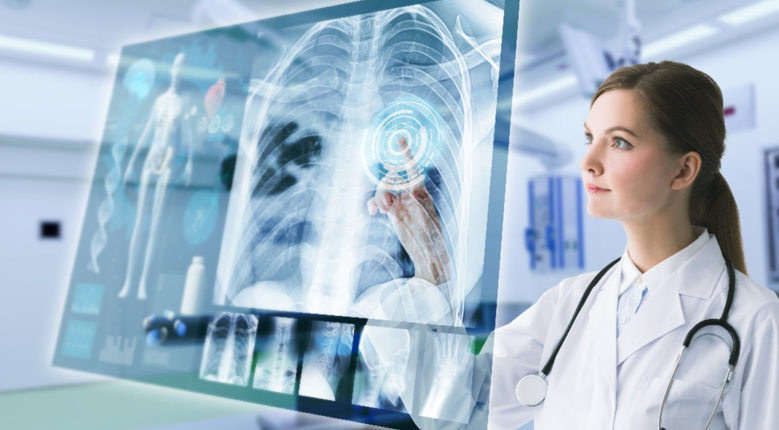Profession
Radiologic technologists or radiographers are the medical personnel who perform diagnostic imaging examinations. They work closely with radiologists, the physicians who interpret medical images to either diagnose or rule out disease or injury. Knowledge of human anatomy is essential in correctly positioning a patient to obtain accurate radiographic images.
Radiographers are educated in anatomy, patient positioning, examinations techniques, equipment protocols, radiation safety, radiation protection and basic patient care. Continuous standing, equipment manipulation, lifting of non-ambulatory patients, and effective communication skills are required to work proficiently, often in an emergency situation.
Program
The Radiologic Technology Program provides students the opportunity to earn an Associate of Applied Science Degree in Radiologic Technology and are eligible to take the national certification exam offered by the American Registry of Radiologic Technologists. Certification of a national credential exam through the A.R.R.T. is required to practice as a radiologic technologist.
A minimum of sixty-two (62) credits are required to receive an Associate of Applied Science Degree in Radiologic Technology. Beginning August 2023, the program consists of 22 months of combined academic and clinical education. The curriculum is based on five (5) semesters including one (1) summer session of full-time study.
General Education courses may be taken prior to admittance to the program. Students must be admitted into the radiologic technology program to take program courses. Upon successful completion of the Radiologic Technology program, the graduate will be able to
- Perform tasks and apply skills to function as an entry-level radiographer
- Demonstrate abilities in communication, critical thinking, and problem solving necessary for professional practice
- Develop and apply professional attitudes, behaviors, and ethics.
Mission, Goals, and Student Learning Outcomes
The mission of the Radiologic Technology Program is to prepare qualified entry-level radiographers with the knowledge, skills, and professionalism for competency in diagnostic medical imaging who will provide quality care and excellent service to the community.
VISION STATEMENT: To promote a thriving educational setting in which radiology students achieve their full potential by providing access to an innovative, high quality, and affordable lifelong education.
CORE VALUES:
- Student Success: Assisting our students in achieving their full potential by providing exceptional pedagogic skills in a safe and positive environment.
- Career-Oriented: Providing and refining students as entry-level professionals to serve the needs of our local communities of interest.
- Integrity: Being accountable, operating with transparency, and having the highest level of ethics and professionalism.
- Diversity: Placing value and respect on individuals of all backgrounds, beliefs, and experiences.
- Innovation: Fostering a culture that welcomes the exploration of new ideas, creative endeavors, and engaging activities.
- Stewardship: Embracing our role as a responsible steward for the efficient and effective use of the resources allocated and entrusted to us.
- Service: Supporting the cultural and economic vitality of EGCC by collaborating and partnering with community organizations.
- Excellence: Cultivating a level of high standards, competency, and proficiency in medical imaging
- Students will apply positioning skills.
- Students will select appropriate technical factors
- Students will demonstrate radiation protection.
- Students will demonstrate effective written communication skills.
- Students will demonstrate effective oral communication skills
- Students will demonstrate effective communication skills with co-workers and patients.
- Students will adapt standard procedures for non-routine patients.
- Students will critique images to determine diagnostic quality.
- Students will demonstrate professional work ethics.
- Students will successfully graduate from the program.
- Graduates will successfully pass the ARRT exam.
- Graduates will seek employment
The goals and student learning outcomes are as follows:
Goal 1: Students will be clinically competent.
Student Learning Outcomes:
Student Learning Outcomes:
Student Learning Outcomes:
Student Learning Outcomes:
Accreditation
The Youngstown Radiologic Technology program at Eastern Gateway Community College will be seeking full accredited by the Joint Review Committee on Education in Radiologic Technology (JRCERT).
The maximum accreditation that may be awarded by the Joint Review Committee on Education in Radiologic Technology is eight years.
The Radiologic Technology Program, Youngstown Campus, at Eastern Gateway Community College is currently not accredited by JRCERT.
The initial JRCERT site visit is anticipated to be December 2023.
JRCERT Contact Information
The Joint Review Committee on Education in Radiologic Technology
20 North Wacker Drive, Suite 2850
Chicago, IL 60606-3182
Phone: (312) 704-5300
Fax: (312) 704-5304
Website: www.jrcert.org
E-mail: mail@jrcert.org
Clinical Education
Facilities for clinical education include:
Hospital Affiliates
- Mercy Health St. Elizabeth Youngstown Hospital, Youngstown, OH
- Mercy Health St. Elizabeth Boardman Hospital, Boardman, OH
- Mercy Health St. Joseph Warren Hospital, SE Warren, OH
- Steward Health Trumbull Regional Medical Ctr. Warren, OH
- Steward Health Sharon Regional Medical Ctr. Sharon, PA
- RPJ Liberty Enterprises LLC dba Liberty Open MRI, Youngstown, OH
- Southwoods Imaging, Boardman, OH
- Steward Health Northeast Ohio Orthopedics, Warren, OH
The PM/Rotations begin the first spring semester and students will be provided advance notice of when their PM/Rotations are scheduled.
Covid-19 Disclaimer/Radiologic Technology Program
During the Covid pandemic, many radiology didactic courses were transferred to remote learning to accommodate the social distancing guidelines by the Center for Disease Control and Prevention (CDC). All radiology labs remain in seat with social distancing. The student lab compacity has been decreased to comply with CDC guidelines. At this time, clinical education hours are being completed at the various clinical sites. This will be monitored in the event of increase cases of Covid-19 and upon notification from the CDC.
Transfer of Credit & Transfer Students
The Radiology Program at EGCC Youngstown Campus does not accept transfer credits from another accredited radiology program. In addition, the program does not accept transfer students from other accredited radiology programs.



